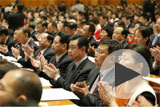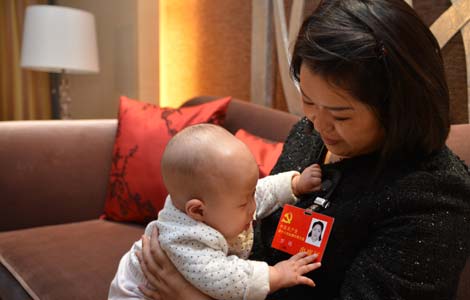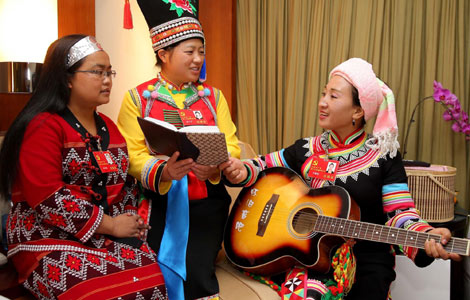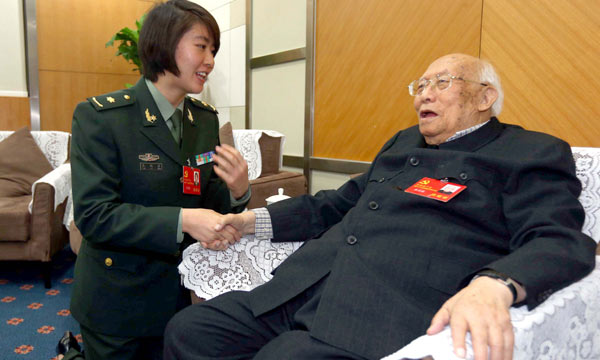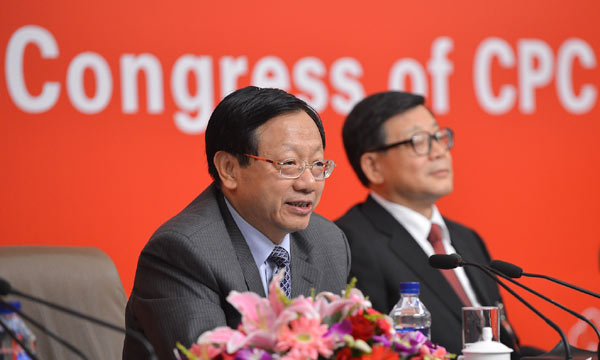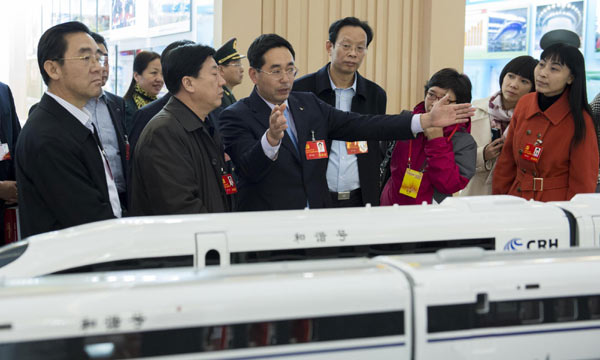Why does Mao Zedong choose Hua Guofeng as his successor?
By Zhang Ruoqiong (CPC Encyclopedia)
Updated: 2011-08-29 15:36
Why did Mao Zedong choose Hua Guofeng as his successor? Maybe the answer spans Hua Guofeng's whole life. As China's top leader after Mao, Hua had played a role turning the tide in Chinese history.
Li Haiwen, a researcher of Central Party History Research, wrote an article about Hua Guofeng's legendary life including his part in the revolution, time in Hunan, putting down the "Gang of Four", his life in later years, especially the process by which he pushed Deng Xiaoping's comeback.
Hua Guofeng was born to a worker family in Jiaocheng County in Shanxi province on Feb 16, 1921. When he was young, he participated in the Jiaocheng anti-Japanese guerrillas and the young cadres training courses. Hua joined the Communist Party of China at the age of 17.
In February 1940, Hua Guofeng was nominated as the director of Anti-Japanese National Salvation Association in Jiaocheng, the main area wiped out by the Japanese. Several militiamen led by Hua were the prototypes written about by two writers in their famous novel "Luliang Hero Biography". In 1941 and 1942, Hua Guofeng was responsible for edging out the enemy from the base area and finally won the combat.
In June 1949, Hua Guofeng left Hebei for the south of China and was nominated as the secretary and the member of prefectural Party committee of Xiangyin County in Hunan province. In July 1951, Hua was transferred to Xiangtan County,the hometown of Mao Zedong, and he was nominated as the County Secretary and the political commissar of People's Armed Forced Department. In October 1952, Hua Guofeng was nominated as the deputy secretary of the prefectural Party committee in Xiangtan County and became the secretary two years later. Over 10 years as county secretary laid a solid foundation for his future work.
|
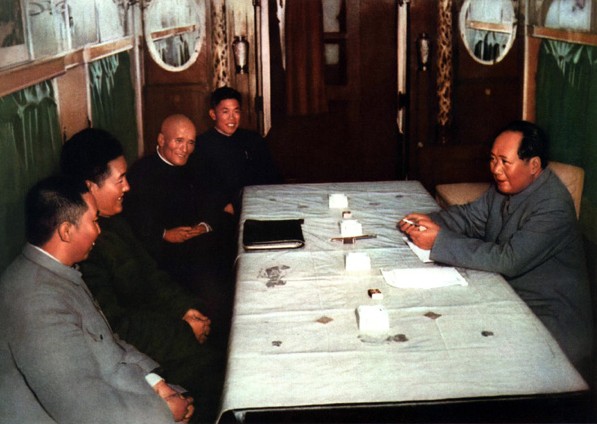 In 1955, Mao Zedong talks with Hunan provincial leaders including Hua Guofeng (1st L) during his visit. |
Hua Guofeng recalled that he met Chairman Mao for the first time in July 1955 in Changsha when Mao visited Hunan and he, as the secretary of prefectural Party committee, made a report on preventing and curing bloodsuckers in the Dongting Lake.
Mao Zedong was satisfied with Hua's report and said that Mao asked questions.. Hua had always payed attention to organizing the farmers while Mao was making an effort to study rural cooperative issues. In the late September 1955, Hua Guofeng attended the Sixth Plenary Session of the Seventh CPC Central Committee for the first time in Beijing.
Video
